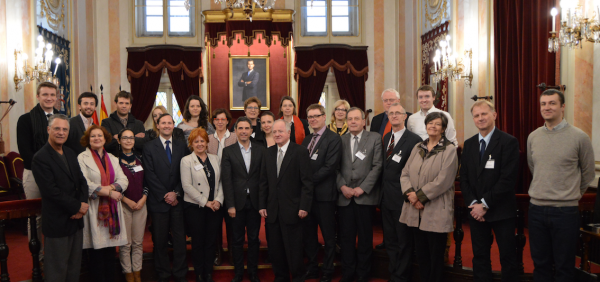Prof. Meinolf Dierkes was one of the five scholars who, in September 1998, founded ‘EUF-Campus Europae’. Their goal was ambitious and informed by the idea that the Central and Eastern European States are based on centuries-old cultures and uniquely contribute to what characterises Europe: unity in diversity. Democracy and human rights have prevailed over many resistances and setbacks over the past two thousand years. Finally, the States of Europe could unite into a political entity referring to fundamental values outlined in the “Charter of Fundamental Rights of the European Union” in December 2000.
However, to study together, one needs to be able to communicate. Meinolf Dierkes was born in 1941 in Hagen, a town on the edge of the German Ruhr area. Influenced by the aftermath of World War II, coming to terms with Germany’s past and rejecting any form of nationalism were among his foundational principles. Universalism became his way of life. Stays and teaching positions in Shanghai, Stanford, Berlin, and Tel Aviv made him a citizen of the world.
What has been possible for him should also become possible for young people from all walks of life and all European countries. An essential instrument for this already existed: the EU’s ERASMUS programme. For this purpose, Erasmus needed to be expanded so that it was available not only for Western European students but also for Central and Eastern European students.
For over ten years, until 2013, Meinolf Dierkes accompanied the development of EUF-Campus Europae as a member of the Steering Committee. Meinolf Dierkes passed away on August 18, 2024, at the age of 82.
Prof. Dr. Christoph Ehmann
EUF Secretary-General Emeritus

